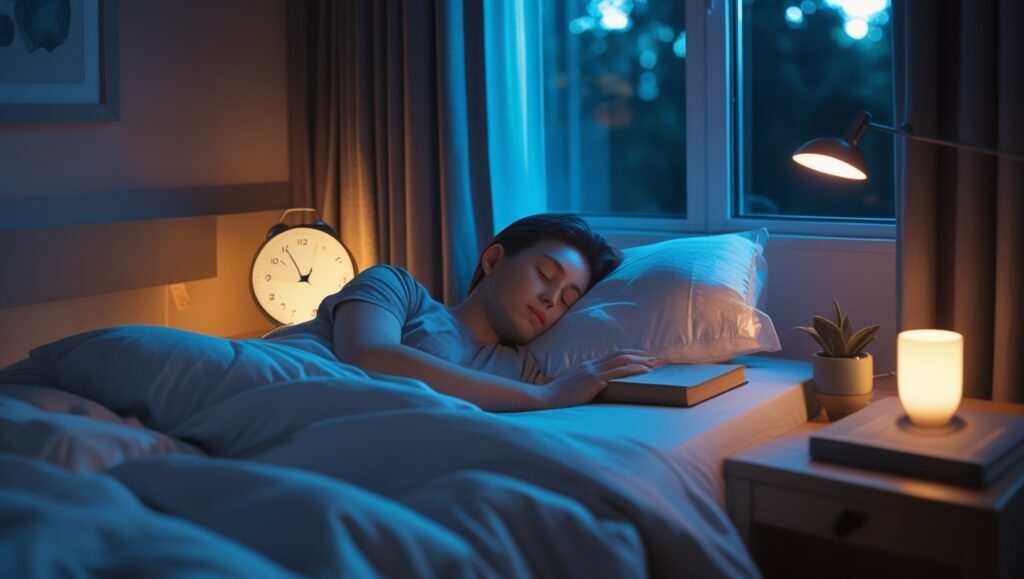Insomnia affects millions worldwide, leading to chronic fatigue, reduced productivity, and a lower quality of life. Fortunately, we have compiled science-backed strategies to help you regain control over your sleep cycle. By implementing these proven methods, you can improve sleep quality and eliminate insomnia for good.
Understanding Insomnia and Its Causes
Insomnia is a sleep disorder characterized by difficulty falling asleep, staying asleep, or waking up too early. There are two main types:
- Acute Insomnia: Short-term sleep issues caused by stress, anxiety, or lifestyle changes.
- Chronic Insomnia: Persistent sleep problems lasting for months, often linked to medical conditions or psychological factors.
Common Causes of Insomnia
- Stress and Anxiety – Overthinking and excessive worry can keep the brain in a hyperactive state.
- Poor Sleep Hygiene – Inconsistent sleep schedules, exposure to screens, and an uncomfortable sleep environment can disrupt sleep.
- Diet and Stimulants – Excessive caffeine, nicotine, or alcohol consumption negatively impacts sleep quality.
- Medical Conditions – Sleep apnea, chronic pain, and hormonal imbalances contribute to sleeplessness.
- Medications – Some antidepressants, decongestants, and blood pressure medications interfere with sleep patterns.
Proven Strategies to Beat Insomnia
1. Establish a Consistent Sleep Routine
Your body thrives on consistency. Set a fixed bedtime and wake-up time, even on weekends. This helps regulate your circadian rhythm, making it easier to fall asleep and wake up refreshed.
2. Optimize Your Sleep Environment
- Keep Your Bedroom Dark and Quiet – Use blackout curtains, eye masks, and white noise machines.
- Maintain a Comfortable Temperature – The optimal sleep temperature is 60-67°F (15-19°C).
- Invest in a Quality Mattress and Pillows – A supportive mattress and pillows reduce body aches and enhance comfort.
3. Limit Exposure to Screens Before Bed
Electronic devices emit blue light, which suppresses melatonin production. To improve sleep quality:
- Avoid screens at least one hour before bed.
- Use blue-light filters or night mode settings on devices.
4. Incorporate Relaxation Techniques
Practicing relaxation before bedtime can help signal your body to wind down. Effective methods include:
- Deep Breathing Exercises – Try the 4-7-8 technique: Inhale for 4 seconds, hold for 7, and exhale for 8.
- Progressive Muscle Relaxation – Tense and relax each muscle group from head to toe.
- Meditation and Mindfulness – Engaging in mindfulness meditation can significantly reduce nighttime anxiety.
5. Manage Stress and Anxiety
Chronic stress can lead to insomnia. Effective stress management includes:
- Journaling – Writing down worries before bed helps clear your mind.
- Cognitive Behavioral Therapy for Insomnia (CBT-I) – A proven method to reframe negative sleep thoughts.
- Aromatherapy – Essential oils like lavender and chamomile promote relaxation.
6. Adjust Your Diet for Better Sleep
Certain foods and beverages can enhance or disrupt sleep.
Foods That Promote Sleep:
- Tart Cherries – Natural melatonin source.
- Almonds & Walnuts – Rich in magnesium and tryptophan.
- Bananas – Contain potassium, magnesium, and serotonin.
- Warm Milk – Provides calcium and tryptophan, aiding sleep onset.
Foods and Drinks to Avoid:
- Caffeine – Found in coffee, tea, and chocolate; avoid at least 6 hours before bed.
- Alcohol – Disrupts sleep cycles and causes frequent wake-ups.
- Spicy or Heavy Meals – Can lead to indigestion and discomfort at night.
7. Get Regular Exercise
Regular physical activity improves sleep quality and reduces stress levels. Best practices include:
- Exercise in the morning or afternoon – Avoid vigorous workouts at least 3 hours before bedtime.
- Yoga and Stretching – Gentle yoga poses and stretches promote relaxation.
8. Avoid Napping Late in the Day
While power naps can be refreshing, napping too late or for too long disrupts nighttime sleep. Limit naps to 20-30 minutes and avoid sleeping after 3 PM.
9. Use Sleep Aids and Supplements Wisely
If lifestyle changes alone aren’t effective, consider natural sleep aids:
- Melatonin Supplements – Helps regulate sleep-wake cycles.
- Magnesium – Supports muscle relaxation and stress reduction.
- Valerian Root – A natural remedy for improving sleep quality.
Consult a healthcare provider before taking any supplements, especially if you are on medications.
10. Seek Professional Help if Necessary
If insomnia persists despite trying these strategies, consult a sleep specialist. Underlying health conditions such as sleep apnea or anxiety disorders may require medical intervention.
Final Thoughts
Insomnia is a frustrating yet manageable condition. By implementing these proven strategies, you can significantly improve your sleep quality, restore energy levels, and enhance overall well-being. Prioritize your sleep, make lifestyle adjustments, and seek professional guidance if needed.

